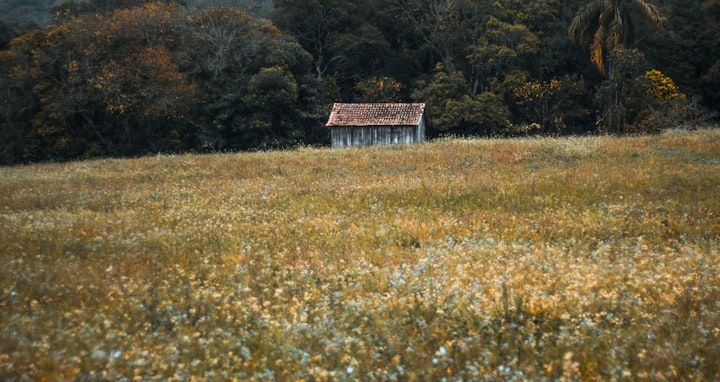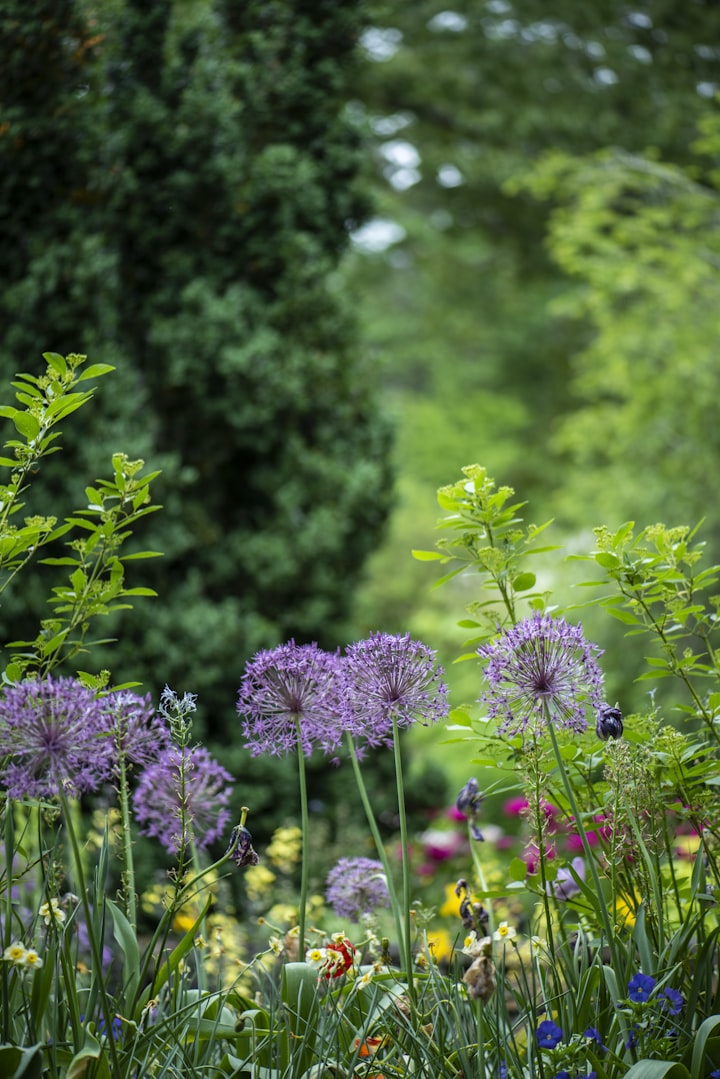The Vagabond
In an unfriendly future, a woman grapples with the concept of home.

The electrodes on my scalp made me sweat. I dug my stubby fingernails into my thigh, straining them against the thin denim of my jeans. With my eyes closed, I focused on the stimulus.
The first scene was of the house I grew up in; a standard-issue prefab CubeLet. If it was just a photo, I doubt I would have known it was mine. It looked like every other letting-agency-distributed steel cube that dotted my candy colored neighborhood. When there are only six colours to choose from, your shiny pink slum doesn’t stand out very much.
Far from being a photo, this was a memory. As I focused on the house, I could feel the scratches I’d made in the powder coated exterior. A phantom of my mother scolded me for playing too rough, insisting the landlords would take our deposit if the house was too damaged. Booze lingered in my memory of stale air as my father shouted and threw a bottle to the floor, denting the scuffed metal.
I squeezed my eyes tighter as the next memory filtered in. My bed back home, broken in the way that lets the springs conform to your body better, sat in a corner just beyond reach in my mind’s eye. The duvet was piled in the middle of the mattress. I nodded my head as I found the words to describe what I was seeing.
I opened my mouth to speak, but a new memory drifted into my consciousness and silenced me. I saw my aunt’s old barn, complete with chipping maroon paint and the smell of hay. The taste of wild berries lingered on my tongue.
A creek bubbled, drowning out every other sound. I could feel the water on my toes, up to my knees, covering my entire body as my best friend laughed above water. I felt her hands around mine, and almost heard her voice.
“Number seventy-six, are you alright? What is your answer?” The voice over the loudspeaker pulled me from the creek like an unlucky fish, and I gasped for dry air as I resurfaced in reality.
“Ah… home!” I shook my head, digging my fingers into my thighs, and prepared to enunciate my answer with the most proper diction I could muster. “Home.”
I looked across the room at my counterpart in this language exchange. His scales glistened with the perpetual mucousy sheen his race was known for. He opened his mouth and spoke his response through clacking mandibles. I had little hope of recreating his sounds, or even remembering what his word for the concept of “home” was, but the research team wasn’t concerned with my memory. My paycheck would remain consistent whether I broadened my cultural horizons or stayed complacent. At the end of the day, they needed help building their translator systems, and I needed help affording food. No more, no less.
“Thank you, that concludes this session. Please carefully remove your transmitters, and present your chips to reception for credit upload.” The loudspeaker crackled into silence, and I stood up out of my chair and exited the chamber.
As I collected my payment, I thought about the barn. I bought and ate dinner, and the barn lingered in my thoughts. Going to bed was no different.
I hadn’t remembered that place in such a long time. Why had it popped into my memory during the session? The stimulus fed to me was clearly meant to prompt a memory of “the place you grew up,” and I didn’t grow up in that barn. Sure, I often escaped my parents’ filthy CubeLet for my aunt’s farm, but that’s not the same thing.
I rolled onto my side, my bed creaking out its disapproval. As I tugged the threadbare duvet over the sharp angles of my shoulders, my mind fixated further on the session.
Did I answer incorrectly? Was I meant to say “building?” Was there something else I was meant to notice?
I examined the lines etched into my bedside wall. Bracing my thumb against the knuckles of my curled fingers, I scratched my boredom into the powdercoat.
What did I even say as my answer? “Home?”
I squeezed my eyes shut. Something heavy settled in my chest, and as my eyes watered, I realised it was regret.
If that had been my home, everything would be better, wouldn’t it?
For endless moments, I breathed in the rhythmic pattern I’d learned as a child. In, hold, out, hold, repeat; all deliberate breaths for when you just want to sleep. Whether or not there was any science backing this strategy, focusing on your breathing was a fantastic way to block out distractions.
I sat up in bed. I couldn’t stop thinking about that barn. With my palms against my eyes, I heaved out a sigh. I dug my fingers into my forehead as tears forced their way past my hands. Sobs gurgled past my lips.
This is why I don’t think about that place.
Gritting my teeth, I steadied my breath and settled under my covers once more. The sunrise was filtering through the slats in the far wall when sleep deigned to grace me.
I’d always been a lucid dreamer. Some folks told me how cool it was that I could tell when I was asleep; I always thought it took the fun out of it. In this case, it felt like a sick joke from my psyche.
The scent of lime blossoms nearby was the first clue. The utter silence smothered me like thick grease, only cut by the sound of my footsteps on crisp Autumn leaves and the delicate dance of the water in the creek.
I clenched my fists, staring down at their childish silhouettes, before I lifted my dream-self’s head to look forward.
There stood the barn, maroon paint glorious in the sunset, scratches and dirt and everything. I wanted to scream, to pull myself out of this dream faster than I ever had before. Give me nightmares, give me the endless void, but don’t give me this. This was too cruel.
I stared at the barn, not thinking, not trying to stop the dream, not doing anything.
A weighty parcel of regret settled in my gut.
My feet started moving. It felt like I was trapped on a bus; one that was going to go whether I wanted it to or not. I smelled manure as I entered the barn. Hay littered the floor, obscuring the mottled, rotting boards that made up so much of this old building.
Something warm and wet touched my right hand. I turned, feeling more in control of my body now, and saw my favourite goat.
“Cocoa, hello.” I bent over to pet her on the head, and before I could process what was happening I had my face buried in her coarse brown fur. She smelled just like she always had, like mud and grime and love.
I let go of her and she trotted away. I still felt warm. Relaxing my shoulders, I started to walk around the barn on my own accord. Everything was just where I’d left it. The splintered holes in the thin walls and ceiling were in the exact same places they’d always been, letting light filter through them in ever-familiar sunbeams.
I had forgotten how beautiful it was in here.
The scent of pie crust halted my admiration. I knew that pie crust aroma, and I was going to find the baker. I walked with purpose through the field, up the path that led to my Aunt’s house. It wasn’t glamorous by any means, but the sight of it upon the hill warmed my heart more than any mass-produced steel cube ever could. She had built that home herself with salvaged particle board and misshapen nails, all collected from the ancient landfills. As I approached, I could just see her shadow through the myriad gaps between slats and boards.
“Still holding this place together, Auntie?” I wasn’t sure if my younger dream-self spoke the words, or if I did.
“I’ve told ya, girlie, you’ll only catch me in a metal box when it’s my coffin.” Aunt Lola waved a wooden spoon at me as I entered her home, flinging bits of watery custard through the air. “You’ll need it to be metal to keep me from coming back.”
I bit my lip. “I’ve missed you, Auntie.”
“It’s only been a week, dear.”
It had been 17 years, but I wasn’t about to correct a spectre. “You’re right.”
“Can you go milk Cocoa? Haven’t gotten to it today.”
I looked at the ground, examining my bare feet against the compacted dirt and yellow moss. “Can I talk to you for a moment, actually?”
Her expression softened like goat butter in the sun. “Of course.”
My feet now looked larger, like an adult’s. I looked at my hands, now calloused and spider-like. I looked at my Aunt, and she was just as I remembered. Not a wrinkle or mole out of place.
I felt the lump of regret in my stomach rise into my throat, and before I could comprehend what was happening, I started hacking it out.
“They hate me, Aunt Lola. I told them about her, and now they hate me. Why do they hate me?” I stumbled backwards from the force at which I spoke. “They’re supposed to love me no matter what. Aren’t parents supposed to do that? But I told them how I love her. I told them how we play in the creek, how soft her hands are when she pulls me out of the water.” I could feel my fingers digging into my palms, and not much else. “My mom just stared at me, like she was staring at a roach. I told them that she kissed me on the cheek, and I was so happy I thought I could die. But when I told them, I think my dad wanted to kill me.” I was on the ground now, pushing my forehead into the cracked earth. “Why don’t they love me like she does? Why did they make me leave? They took me from her and I couldn’t even say goodbye. They took me from this place. They took me from you, Aunt Lola. And I worry…”
I shot up in my bed.
I had known it was just a dream, and yet it hurt to wake up. “I worry that I’ll never see you again.”
Sleep took me once more after I cried the regret from my lungs, but I woke up exhausted nonetheless. As I trudged across busy streets to the research laboratory, I did my best to push the barn from my mind. It was gone. My parents never let me see my Aunt after they found out I loved another girl; they were convinced that this was all my Aunt’s influence, made worse by how it happened on her farm. They did, however, enjoy informing me that all of her land had been levelled for the construction of a new Interstellar Dockyard
A bitter laugh escaped my throat at the memory. She never did make it into a metal coffin; she was buried, passion and all, under poured concrete.
I walked into the research lab and checked in with the receptionist. As always, they had me review the words I had already spoken. I skimmed the words, as always, until my eyes rested upon the final word I’d spoken at the last session.
Home.
I laughed to myself, and started to cry.






Comments
There are no comments for this story
Be the first to respond and start the conversation.